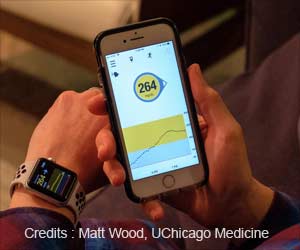The uncertain political situation has proved to be a boon for a flourishing drug trade in Afghanistan.

"Every night I feel I'm going to die. I sleep in the cold. I suffer," said Zaman, whose clear blue eyes stand out from his bony, filthy face as he stands shivering in the snow near the fallen addict.
"After taking heroin, I feel good. It doesn't take away the pain, but it reduces it. It's like medicine. I'm ill."
He was a policeman in southern Helmand province, a Taliban flashpoint, when he got hooked on opium. From there, it was a quick descent into heroin and after three years in Iran, he's back in Kabul "where drugs are easier to find".
A team from international charity Doctors of the World revive the man lying in the snow, but have no choice but to leave him to fend for himself down by Pul-i-Sokhta bridge, where the heroin addicts flock in their hundreds.
"Every morning we find one or two bodies," says Abdul Raheem from the charity. The pitiful state of the men seen and questioned by AFP leaves little doubt about their inability to survive through several such harsh winters.
Advertisement
UN Secretary General Ban Ki-moon on Thursday urged Afghanistan to make fighting drug trafficking a priority, as opium harvests soared last year by 61 percent and ministries are at loggerheads over how best to contain the crisis.
Advertisement
Trapped in the middle is Doctors of the World, which in 2010 started a pilot methadone programme for 200 patients, only for the counter-narcotics ministry to block it six months later.
Still responsible for 71 patients, the charity now has to fight on a daily basis just to get permission to import methadone.
"A lot of research has been done in Afghanistan. There are no reasons why they should refuse, apart from the linkage between the drug mafia and the ministry for counter-narcotics," said health ministry official Sayed Habib.
In an interview with AFP, he said that the illegal drug trade is worth $3.5 million a day in Kabul alone.
"If we distribute methadone for free, there won't be any need for heroin and the market in Afghanistan will collapse," he said.
Organised criminals "are ready to do anything" to stop this happening and buy off the Afghan authorities responsible for the war against drug production and trafficking, suggests Habib, offering to provide tape-recorded evidence.
But Abdul Qayyum Samer, spokesman for the counter-narcotics ministry, hit back: "There is no evidence of such a claim."
Afghanistan grows about 90 percent of the world's opium, says the UN drugs and crime office UNODC. It estimates that export earnings last year from Afghan opiates were worth $2.4 billion -- equivalent to 15 per cent of GDP.
Those who fled abroad to escape war, poverty and unemployment in Afghanistan are particularly vulnerable to drug abuse and becoming addicts, said UNODC Doctor Mohammad Raza.
UNODC says the answer is more and varied drug treatments, in which methadone should be part of a package available for drug users.
But the health ministry official insists methadone is the best way to treat addicts, particularly intravenous users with HIV now his biggest concern.
"By stopping drug use, you stop HIV transmission in our community. It's the most important issue for us," said Habib.
Last year, 636 HIV positive people were registered from around the country. This year, the number has doubled to about 1,200, he said.
"Those are only people registered. We expect to have more than 5,000 HIV positive people, who will not come to our health facilities because of discrimination and they will spread HIV," he said.
Doctors of the World said it was pleased with the methadone programme.
"What is great," said Ernst Wisse, one of those running the programme "is to see them arriving in a terrible state at the centre and then several days later, they're already playing volleyball!"
Source-AFP








